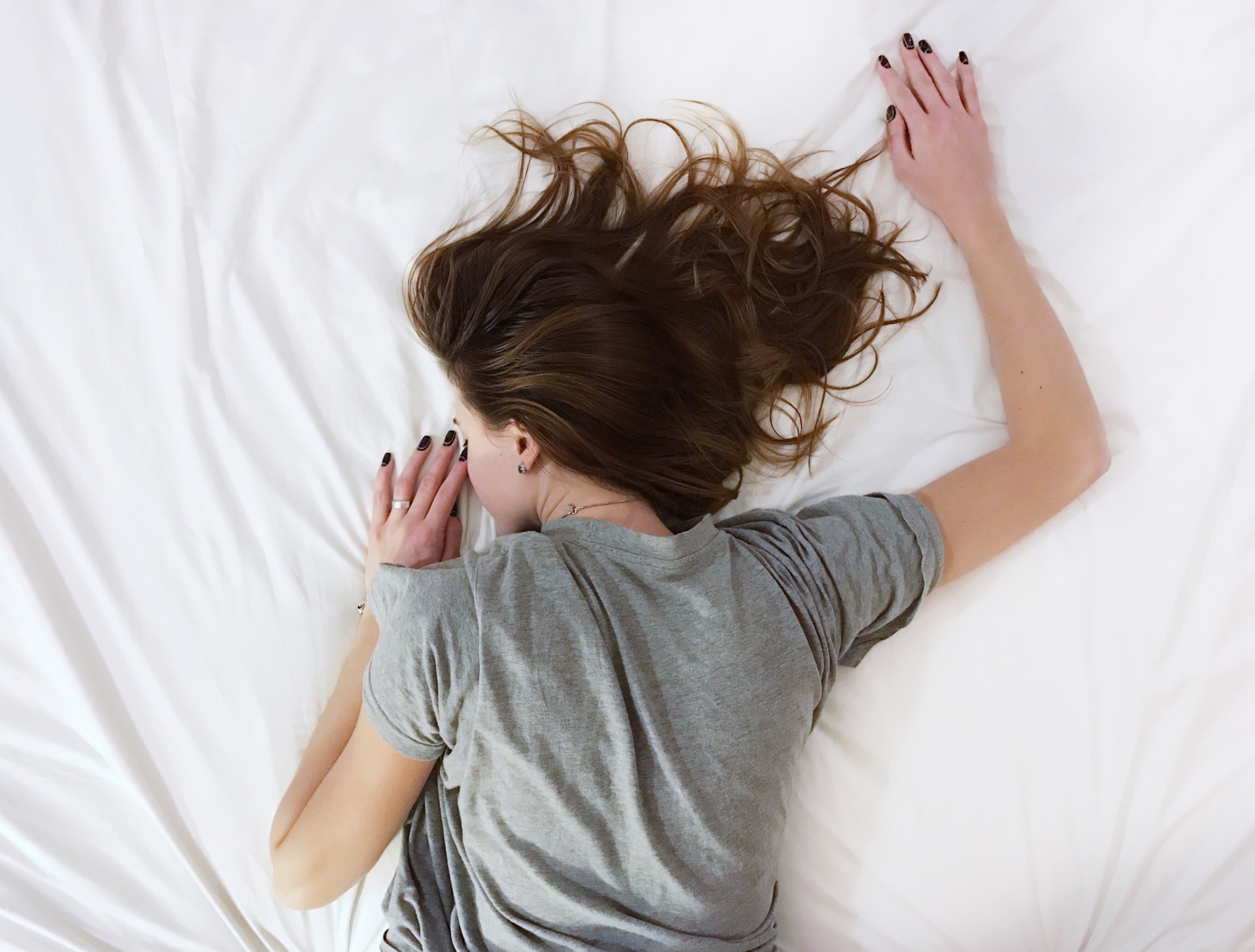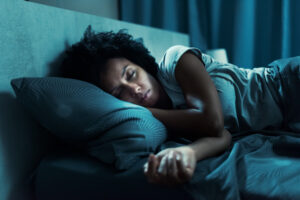Some of the substances we use to either stay awake or fall asleep are affecting our ability to catch adequate zzz’s. Read on for five ways that weed affects sleep, and how to make it work better for you.
It’s probably no surprise to learn that 50 to 70 million adults in the U.S. experience symptoms of a sleep disorder, and about 40 million Americans experience insomnia every year. Everyone complains about being tired all the time, so these stats track with the anecdotal evidence around you. But have you ever thought about why we’re all having such a hard time falling and staying asleep?
Believe it or not, the substances we rely on to help us fall to sleep (and then to wake us up) can be blamed for poor quality of sleep. Coffee is a great example: Sure, it helps us wake up, but when there’s too much caffeine in your system when it’s time for bed, it can also get in the way of a proper night’s sleep. Alcohol is the same deal; it’s a depressant, which can help us relax and ease the stress of the day, but it can also lead to sleep disruptions and poor-quality sleep. Many people use cannabis as a sleep aid, too, but for some, it backfires and leads to insomnia instead.
So, the question is, how can we adjust what we consume to improve sleep?
Why We Need a Good’s Sleep
Sleep is as important to our health and wellbeing as diet and exercise. While modern life isn’t conducive to healthy sleep patterns, we can improve them by imposing a regular schedule with an adequate amount of time devoted to shut-eye. Staying active during the day, avoiding alcohol and minimizing screen time at night can also help.
By getting enough sleep (seven to 10 hours for teens and adults), we receive benefits that include the following:
- Boosting our productivity and concentration
- Consuming fewer calories during the day
- Achieving better athletic performance
- Lowering the risk of heart disease
- Gaining more social and emotional intelligence
- Preventing depression
- Lowering inflammation
- Improving the immune system
Make Caffeine Work for You
No one is saying that you should forgo your morning cup of java. For some people, it’s a simple joy that has less to do with the caffeine and more to do with the taste, the ritual or even the camaraderie with friends or coworkers. It helps to make you feel alert, may help with concentration, may boost self-confidence and motivation, and more.
But here’s what to remember: All of that good stuff that comes with a jolt of caffeine is going to get in the way of sleep. If you’re drinking a cup of joe within a few hours of bedtime, you’re very likely going to have trouble nodding off. Try these strategies to enjoy your coffee and still get the rest you need:
- Institute a coffee cut off time. Switch to decaf coffee or tea six to eight hours before you need to be asleep in order to allow time for the caffeine to wear off.
- Drink lots of water. For every caffeinated beverage you drink, follow it with a large glass of water.
- Get adequate exercise. Burning off energy and getting a boost of your body’s natural, feel-good hormones will help you to relax and ready yourself for sleep.
Alcohol Makes You Sleepy But Doesn’t Necessarily Help You Sleep
That warm, dozy feeling you get after a couple of glasses of wine is delicious, but it may actually be hurting your ability to get a good night’s sleep. Research shows that consuming alcohol before sleep can disturb your sleep quality and quantity. Because alcohol metabolizes quickly, it may divide your sleep into two parts: The first part of the night you can sleep alright, with an increase in non-REM (rapid eye movement) sleep, but in the second part of the night sleep can be interrupted with lots of wake-ups and increased REM sleep and dreaming — this is why you often feel fatigued in the morning.
To reduce the risk of alcohol-related sleep disruption, plan to have your last drink about four hours before you go to bed. This will give your body time to metabolize the alcohol before you hit the pillow.
How to Use Cannabis as a Natural Sleep Aid
When consumed properly, cannabis can enhance one’s ability to fall asleep as well as stay asleep, without causing an endless cycle of sleep disturbance. “Marijuana is an effective sleep aid because it restores a person’s natural sleep cycle, which so often falls out of sync with our schedules in today’s modern lifestyle,” says Dr. Matt Roman, a medical marijuana physician.
Here are four ways (plus one word of caution!) weed can affect sleep so you can get a better night’s rest:
- Cannabis triggers ECS receptors.
Cannabis works by triggering receptors in our endocannabinoid systems (ECS), helping to regulate hormones, immunity, pain, hunger and, yes, sleep. Cannabinoids are naturally occurring compounds found in marijuana plants, which help have medicinal and therapeutic effects. Two of the cannabinoids that are well-known for inducing a sleep-filled night are THC (tetrahydrocannabinol) and CBD (cannabidiol). - THC makes your eyelids heavy.
THC, more than CBD, makes us sleepy, so you want a strain of weed that has a high percentage of THC. It usually reduces the amount of REM sleep you get. Reducing REM sleep means reducing dreams—and for those who experience PTSD, it could mean cutting back on sleep-disturbing nightmares. If you spend less time dreaming, then you may spend more time in a deep sleep. - Cannabis changes your sleep cycle.
Using cannabis can change your sleep cycle, so you need to use it carefully; you don’t want it to interrupt sleep patterns in a bad way. Some medical professionals suggest, for example, capping the amount of THC in your cannabis nightcap at 20 percent. Going over this amount gives you a powerful dose that may hinder, not help, your quest for better sleep. - A little bit goes a long way.
Microdosing is an effective way to enjoy the therapeutic effects of weed. This means taking cannabis with a lower dose of a specific cannabinoid (often one to three milligrams), such as THC, so that it works in the background. You don’t necessarily feel it physiologically but get the enhancement, such as better sleep. This approach is particularly good for people who don’t want to feel the “high” often associated with some strains of weed.A word on edibles: Edibles can be wonderful but they take longer to kick in. An ill-timed edible may leave you tossing and turning for a couple of hours at night before they start to work, leading to a punchy feeling in the morning. If you’re new to cannabis or to edibles and want to make them work for you, try an edible that has 2.5 mg of THC or less. Titrate the dosage upwards night by night until you find the right amount and timing for your system.




